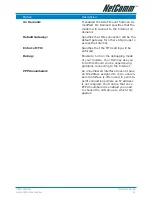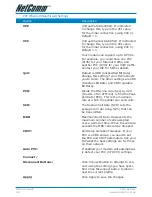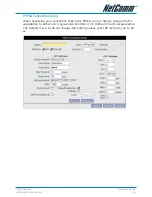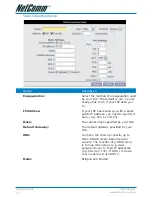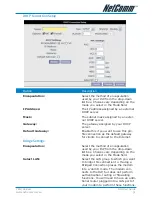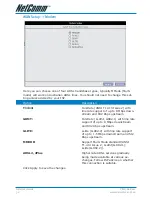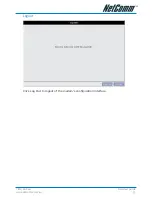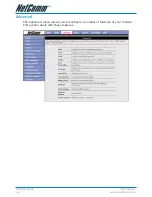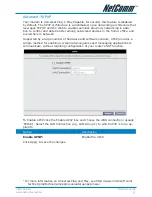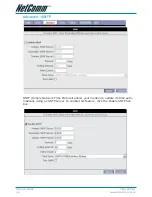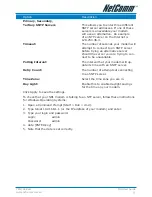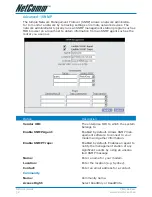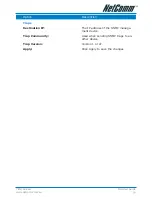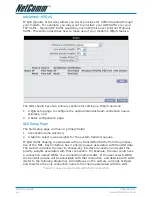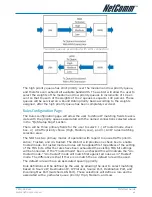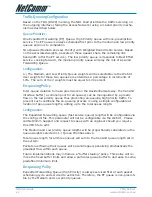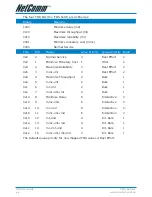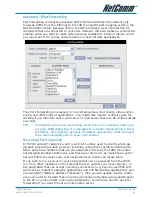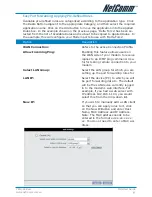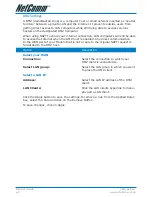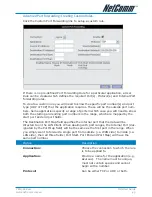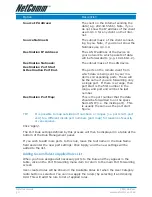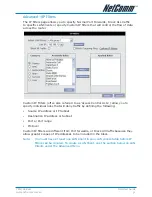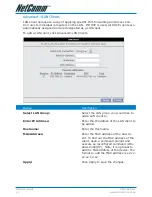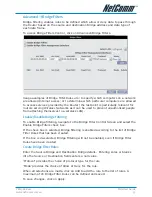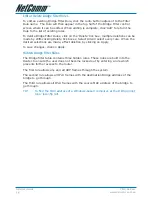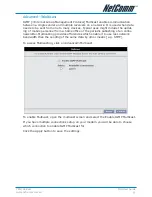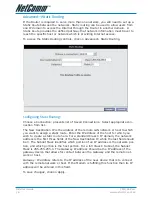
YML780 Rev1
NB1 User Guide
www.netcomm.com.au
41
Transmit queues associated with LAN connection
The high priority queue has strict priority over the medium and low priority queue,
and therefore can exhaust all available bandwidth. The web UI will allow the user to
select the weights of the medium and low priority queues in increments of 10 per-
cent so that the sum of the weights of the 2 queues is equal to 100 percent. These
queues will be serviced on a Round Robin priority basis according to the weights
assigned, after the high priority queue has been completely serviced.
Rules Configuration Page
The Rules configuration page will allow the user to define IP matching fields to asso-
ciate with the priority queues associated with the named connections selected above
in the “QoS Setup Page” section.
There will be three primary fields for the user to select: 1.) A Trusted mode check
box. 2.) A traffic priority choice (High, Medium, Low), and 3.) An IP rules matching
selection area.
The NB1 has two primary modes of operation with regard to queue traffic prioriti-
zation; Trusted, and Un-trusted. The Web UI will provide one check box to enable
trusted mode. In trusted mode all rules will be applied first regardless of the setting
of the TOS bits. After the rules have been exhausted the existing TOS bit settings
will be honoured. If the “Trusted mode” box is unchecked this will indicate the “Un-
trusted mode.” “Un-trusted” mode will match first against all rules as in “Trusted”
mode. The difference is that if there is no match then a default rule will be used.
The default rule will have an associated queuing priority.
Rule definitions will be defined by the user by allowing the user to select matching
based on Source IP, Destination IP, IP Protocol, Source Port, Destination Port, and
Incoming Mac Port (switched LAN Port). These selections will define a rule and be
associated with a particular queue priority: High, Medium, and Low.

